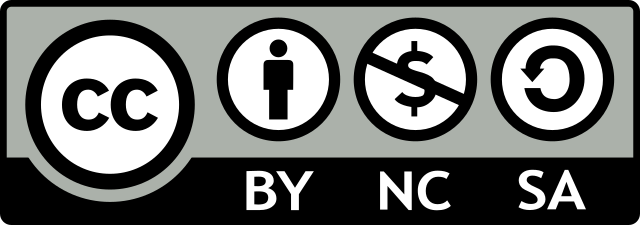Manajemen Perencanaan Program Halaqah Lughawiyah Perspektif Kognitif Jean Piaget di Pondok Pesantren Al-Umm Malang
Abstrak
Pondok Pesantren merupakan lembaga pendidikan dengan tradisi keilmuan yang khas. Bentuk perencanaan lembaga yang baik akan berdampak positif serta dapat menjadi bukti nyata sesuai dengan visi misi yang dibentuk. Manajemen perencanaan program di Pondok Pesantren Al-Umm digagas oleh pengasuh dan jajarannya untuk membumikan dan menjaga eksistensi bahasa Arab di lingkungan pesantren pada era modern. Dalam pembahasannya, peneliti membatasi dengan dua rumusan masalah, pertama, mendeskripsikan ruang lingkup perencanaan program Halaqah Lughowiyah di Pondok Pesantren Al Umm Malang. Kedua, bagaimana proses perencanaan program Halaqah Lughowiyah di Pondok Pesantren Al Umm Malang berdasarkan teori kognitif Jean Piaget. Penelitian ini termasuk dalam penelitian kualitatif deskriptif dengan teknik pengambilan data menggunakan observasi, wawancara, dan analisis dokumen. Analisis data pada penelitian ini menggunakan analisis Miles dan Huberman berupa reduksi data, display data, serta kesimpulan. Hasil Penelitian disebutkan bahwa manajemen perencanaan program bahasa Arab di Pondok Pesantren Al Umm Malang: Pertama, Program Halaqah Lughawiyah merupakan program yang menggunakan model Interactive Approach dan termasuk dalam dimensi Medium Term Planning dengan jangka waktu tiga tahun. Kedua, ketercapaian perencanaan program ini bersandar pada teori belajar kognitif Jean Piaget sesuai implikasinya dari segi tujuan pembelajaran kognitifnya dan fase perkembangannya pada fase operasional formal yaitu penerapan program usia 12 tahun ke atas.
Referensi
Aini, Dalilan, Muhammad Nahidh Islami, Eva Famila Rosyida, Zakiyah Arifa, and Umi Machmudah. “Manajemen Program Perencanaan, Pelaksanaan, Dan Evaluasi Munadharah ’Ilmiyah Pekan Arabi Di Universitas Negeri Malang Di Masa Pandemi.” Taqdir 7, no. 2 (2022): 181–97.
Aliyah, Varda Himmatul, Ahmad ’Ali Maghfur, and Danial Hilmi. “Manajemen Perencanaan Program Bahasa Arab Di Mayantara School Malang.” Arabia 11, no. 1 (2019): 175. https://doi.org/10.21043/arabia.v11i1.5214.
Amirudin, Amirudin, Syarifudin Basyar, Muhammad Akmansyah, Subandi Subandi, and Sulthan Shahril. “Arabic Learning Management at Islamic Boarding Schools in Lampung.” Tadris: Jurnal Keguruan Dan Ilmu Tarbiyah 5, no. 1 (2020): 97–109.
Badi’ah, Zahrotul. “Implikasi Teori Belajar Kognitif J. Piaget Dalam Pembelajaran Bahasa Arab Dengan Metode Audiolongual.” Attractive : Innovative Education Journal 3, no. 1 (2021): 76. https://doi.org/10.51278/aj.v3i1.166.
Fadli, Muhammad Rijal. “Memahami Desain Metode Penelitian Kualitatif.” Humanika 21, no. 1 (2021): 33–54.
Fatim, Al Lastu Nurul, Ahmad Faizal Amin, Tsabit Nurrahman, and Zakiyah Arifa. “Manajemen Perencanaan Program Festival Jazirah Arab Untuk Mengembangkan Bahasa Dan Seni Arab.” An Nabighoh: Jurnal Pendidikan Dan Pembelajaran Bahasa Arab 22, no. 01 (2020): 37.
Haniah, Haniah. “Manajemen Perencanaan Kurikulum Bahasa Arab.” PELITA 4, no. 2 (2012): 282–320.
Muhammad Kristiawan, Dian Safitri & Rena Lestari. MANAJEMEN PENDIDIKAN. 1st ed. Yogyakarta: DEEPUBLISH, 2017.
Mustari, Mohamad. Manajemen Pendidikan.Pdf. Edited by M. Taufiq Rahman. Bandung: ARSAD Press, 2013.
Muyassarah, Mufidatul Ilmi. “Teori Tentang Belajar Dan Penerapannya Dalam Pembelajaran Bahasa Arab.” Prosiding Konferensi Nasional Bahasa Arab I “Kereativitas Dan Inovasi Dalam Pembelajaran Bahasa Arab Di Indonesia,” 2016, 245–56. http://prosiding.arab-um.com/index.php/konasbara/article/viewFile/32/27.
Nilamsari, Natalina. “Memahami Studi Dokumen Dalam Penelitian Kualitatif.” Wacana 13, no. 2 (2014): 177–81.
Ninoersy, Tarmizi, Tabrani Za, and ; Najmul Wathan. “Manajemen Perencanaan Pembelajaran Bahasa Arab Berbasis Kurikulum 2013 Pada Sman 1 Aceh Barat.” Jurnal Kajian Ilmu-Ilmu Keislaman 05, no. 1 (2019): 83–102.
Nurlina, Nasir Usman, and Sakdiah Ibrahim. “Implementasi Manajemen Pengajaran Pai Untuk Meningkatkan Prestasi Belajar Siswa Pada Sdn Ateuk Kabupaten Aceh Besar.” Jurnal Mudarrisuna 4, no. 1 (2014): 124–35.
Rosyid, M Fairuz, Umi Baroroh, and A Latar Belakang Masalah. “TEORI BELAJAR KOGNITIF DAN IMPLIKASINYA DALAM PEMBELAJARAN BAHASA ARAB” 9, no. 1 (2019): 92–110.
Rosyid, Muhammad Kholilur, Moch Sulthoni Faizin, Nazahah Ulin Nuha, and Zakiyah Arifa. “Manajemen Perencanaan Pembelajaran Aktif Di Lembaga Kursus Bahasa Arab Al-Azhar Pare Kediri.” LISANIA: Journal of Arabic Education and Literature 3, no. 1 (2019): 1–20. https://doi.org/10.18326/lisania.v3i1.1-20.
Rusandi, and Muhammad Rusli. “Merancang Penelitian Kualitatif Dasar/Deskriptif Dan Studi Kasus.” Al-Ubudiyah: Jurnal Pendidikan Dan Studi Islam 2, no. 1 (2021): 48–60.
Sa’ud Udin Syaefudin, Abin Syamsuddin Makmun. Perencanaan Pendidikan : Suatu Pendekatan Komprehensif / Udin Syaefudin Sa’ud, Abin Syamsuddin Makmun ; 4th ed. Bandung: Rosdakarya, 2014.
Safri, Hendra. “Manajemen Dan Organisasi Dalam Pandangan Islam.” Kelola: Journal of Islamic Education Management 2, no. 2 (2017): 154–66.
Shobirin, Abdurrahman, and Danial Hilmi. “Implikasi Manajemen Program Bahasa Arab Dalam Mencetak Lulusan Unggul.” Tarbiyatuna: Jurnal Pendidikan Ilmiah 6, no. 1 (2021): 15–26.
Sutarto, Sutarto. “Teori Kognitif Dan Implikasinya Dalam Pembelajaran.” Islamic Counseling: Jurnal Bimbingan Konseling Islam 1, no. 2 (2017): 1.
Wiyani, Novan Ardy. “Perencanaan Program Kegiatan Responsif Gender.” YINYANG: Jurnal Studi Islam, Gender Dan Anak 12, no. 2 (2017): 327–50. https://doi.org/10.24090/yinyang.v12i2.2017.pp327-350.
##submission.copyrightStatement##
##submission.license.cc.by-nc-sa4.footer##
